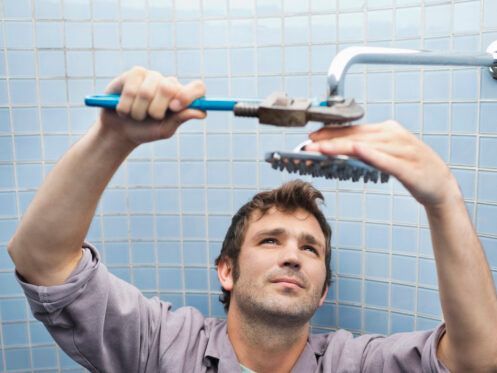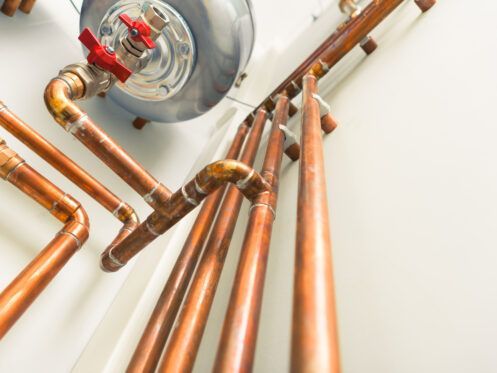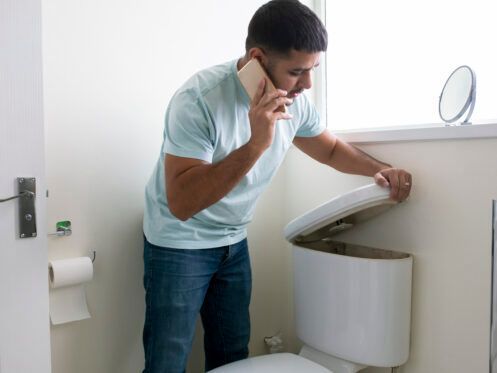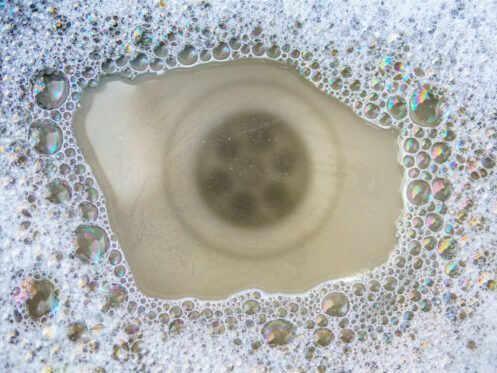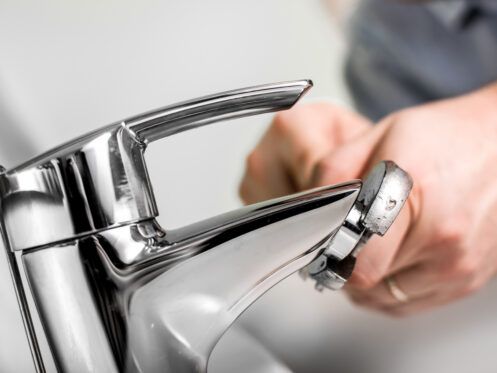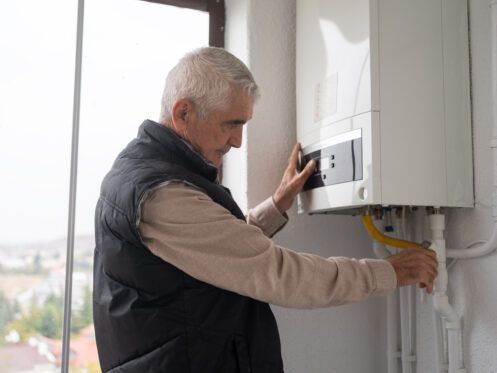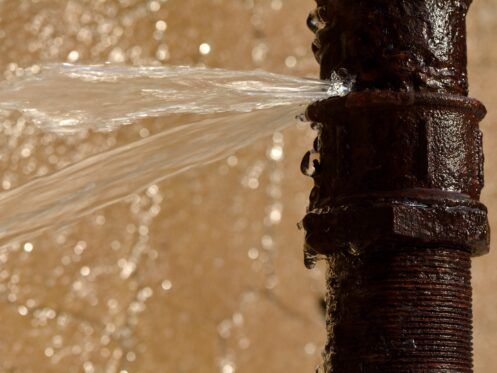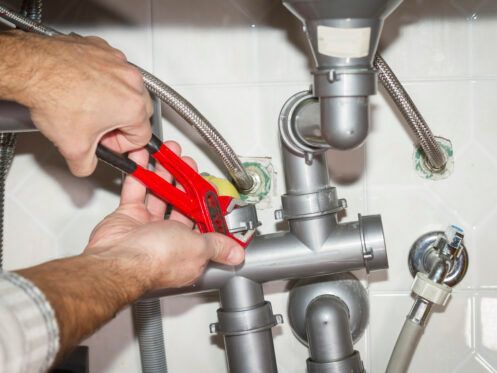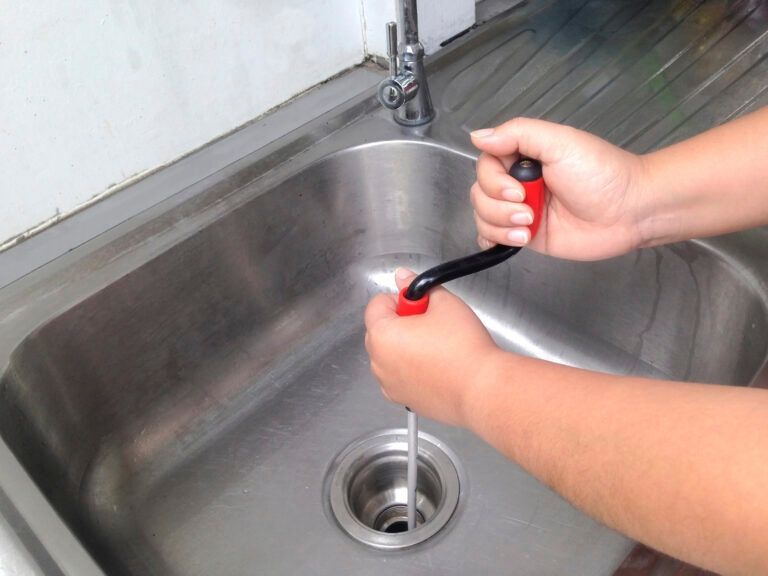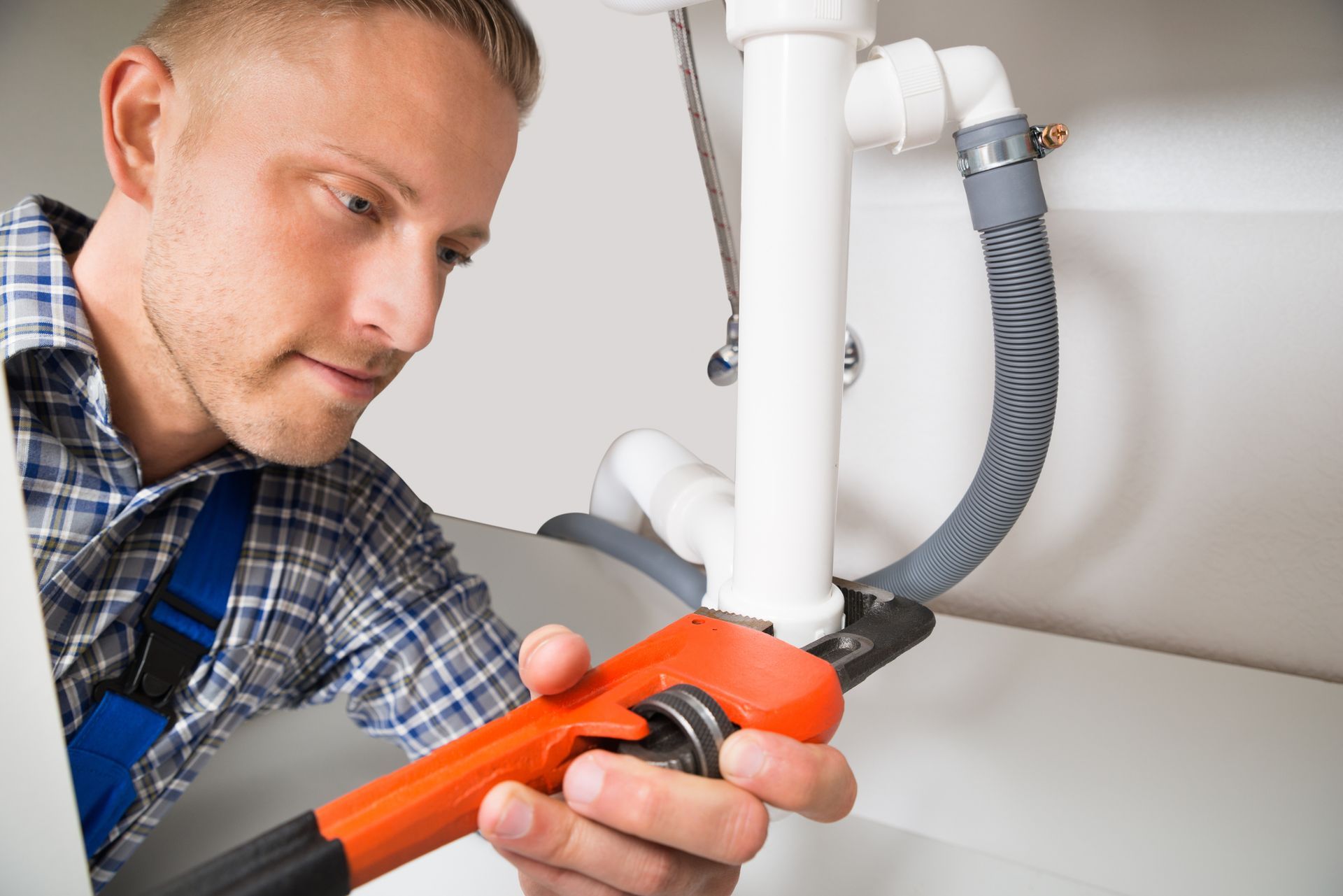7 Steps To Keeping Your Drains Cleaned
Keeping the drains in your home clean is important if you want to have a smooth-running plumbing system. Regular maintenance helps keep blockages and odors to a minimum while lengthening the lifespan of your home’s pipes. Every proactive step you take with the drains in your home helps ensure that the plumbing system stays reliable when you need it the most.
1. Prevent Grease Buildup
Grease is one of the major factors that causes blocked drain issues. It is important that everyone in your household understands the proper ways to dispose of grease, so it doesn’t enter your home’s plumbing system. Over time, grease accumulates and builds a thick layer in your home’s pipes, which restricts the passage of water and may ultimately lead to its blockage. To prevent this it is necessary to let grease cool after you cook with it and dispose of it in the trash. Pour liquid fats into a jar that you want to throw away, and dispose of it once you fill the jar. Keeping this habit as a household practice helps reduce the chances of clogs forming.
2. Use Drain Screens
Drain screens create great protection from blockages by catching hair, food particles, and other waste or objects from entering your home’s pipes. Put these mesh covers over the drains in for your sinks, shower, and bathtub drains. They trap potential clogging materials before they have a chance to enter your home’s plumbing system. These drain screens are especially important if you have people with long hair in your household or if you bathe your pets in your home’s shower or tub. Normally, hair wraps itself around other debris in the pipes to create a dense mass that eventually obstructs the passage of water. It is easy to remove the drain screens, shake them out in the trash can, then replace them. Water easily flows through them if you do this after each use of the sink or shower/bath.
3. Flush Drains Regularly With Hot Water
Flushing drains with hot water is one of the easiest ways to keep them clear from buildup. Small particles or residue inside of your home’s pipes emulsify and wash away with hot water, especially when taking a shower or washing dishes. You can fill pots full of heated water from the stove and pour the water down the drains in your home for maximum cleaning power. You can also add a grease-cutting dish soap when flushing the drains to help break up particles and wash away any buildup.
4. Schedule Professional Drain Cleaning
Professional drain cleaning helps keep your home’s plumbing system in optimal shape. No matter how well you care for your home’s pipes, over time, small amounts of debris build up, which causes reduced water flow and eventually clogs. Drain cleaning removes this buildup, making sure your home’s drains stay functional.
Our plumbers at In & Out Plumbing & Construction have extensive training, equipment, and techniques that work well to clear drains quickly and efficiently. We may use hydrojetting to clear your home’s pipes, which is high-pressure water that dislodges blockages and buildup. This technique also helps scrub the pipe’s interior surfaces to make the water flow as smoothly as possible.
5. Keep Away From Chemical Drain Cleaners
Though they may seem like an easy fix for clogs, you want to avoid chemical drain cleaners. Most of these cleaners involve strong chemicals that can eat through the clog. Over time, these harsh chemicals will also erode the material in your pipes. In addition, the cleaner’s chemical content can influence the environment negatively since the toxic materials leak into the water supply.
It’s always best to clean your drains without chemicals such as drain cleaners. Alternatively, you can make a cleaning solution using baking soda and vinegar. You just need to put half a cup of baking soda down the drain and half a cup of vinegar afterward. Now, mix it since it will create a little chemical reaction that will make all the junk inside those pipes break down. Let the mixture flush with some hot water after half an hour. You won’t damage the pipes or environment using this method, and in most cases, it is just as effective as chemical cleaners.
If you have a septic system, you should also avoid things like bleach in your drain. Septics break down waste with microbes found in your intestinal flora. Bleach kills these microorganisms and slows the rate at which your septic processes your waste. There are alternate enzyme-based drain cleaners that don’t hurt septics or pipe materials. Pour some of the material in your drain during a time when you won’t be using your plumbing for several hours, like before you go to bed or leave your house for work.
6. Perform Proper Waste Disposal
When it comes to keeping your home’s drains clear, it is important to dispose of waste properly. Many everyday items go down drains and start to build blockages over time. Some of these items include coffee grounds, eggshells, and even thicker liquids like conditioner for your hair. For example, the coffee grounds do not easily break down in water and may combine with other particles to develop a tar-like substance that is hard to wash out of pipes and garbage disposals. Composting and throwing these items away helps avoid clogs.
Some of the liquids you shouldn’t ever put down a household drain include paint, motor oils, chemicals, and flammable liquids. These liquids may damage your home’s pipes and hurt the environment. Follow local hazardous waste guidelines for proper disposal.
Only put human waste and toilet paper into a toilet, nothing else. Most of the things people flush down the drain don’t break down easily, and it creates serious plumbing problems. Wipes, sanitary products, and even “flushable” wipes are huge culprits. These materials don’t dissolve as easily as toilet paper, and they cause blockages in your home’s pipes. These blockages can cause serious plumbing issues like backflows and high repair bills. Education is key to knowing what to flush and what not to. Just because it says “flushable” on the package doesn’t mean it won’t end up clogging your plumbing system. Most of those products can go through your toilet initially but may accumulate further down in your pipes or sewer line until where big clog may appear.
7. Clean Your Garbage Disposal Regularly
If you have a garbage disposal installed in your home’s kitchen, your household must use it properly to keep drains clean. Never put large amounts of food through the disposal and also avoid fibrous or starchy foods. You should also always use cold water before, during, and after using the garbage disposal to prevent buildup.
An excellent way to clean your garbage disposal is to use ice cubes and coarse salt. The ice sharpens the disposal blades, and the coarse salt acts like an abrasive to scrub off food particles and other debris. To do this, just run cold water, turn on the disposal, and slowly feed a few ice cubes and a handful of coarse salt into the unit.
At In & Out Plumbing & Construction in San Francisco, California, we provide piping, repiping, and leak detection services for homes in the area. Our friendly team also provides professional drain cleaning , water treatment services, sump pumps, and kitchen remodeling services. Contact In & Out Plumbing & Construction for more information today!
The post 7 Steps To Keeping Your Drains Cleaned appeared first on In & Out Plumbing & Construction.
